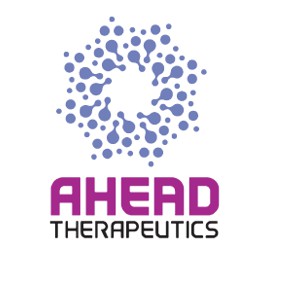About
The multidisciplinary Immunology of Diabetes Research Group at IGTP is part of the Immunology Department of the Germans Trias i Pujol University Hospital (HUGTiP). Since 2000, the group, composed of researchers, immunologists, endocrinologists, and pediatricians, has been dedicated to unraveling the etiopathogenesis of type 1 diabetes (T1D) and other autoimmune diseases, as well as to developing innovative strategies for their prevention and cure.
Keywords: Autoimmunity, type 1 diabetes, immunotherapy, biomarkers.
_1748433276.JPG)
Group leader
- Marta Vives-Pi, BSC, PhD

Marta Vives-Pi, BSC, PhD
Marta Vives-Pi is a researcher at the Immunology Service of Germans Trias i Pujol University Hospital, leader of the Immunology of Diabetes Group at Germans Trias i Pujol Research Institute (Badalona). Since 1996, she has been leading national and international research projects, with a particular emphasis on developing immunotherapies for autoimmune diseases. Additionally, Dr Vives-Pi is Associate Professor of Immunology at UAB and is the co-founder and Scientific Director of Ahead Therapeutics SL. This spin-off company, established in 2017, is dedicated to translating the group's immunotherapy innovations into clinical applications for autoimmune diseases.
Contact: mvives(ELIMINAR)@igtp.cat
ORCID: 0000-0003-3735-0779
Team
Postdoctoral researchers
David Perna-Barrull, PhD(ELIMINAR)
Jorge Gallego, PhD(ELIMINAR)
PhD students
Lidia Almenara-Fuentes(ELIMINAR)
Roger Domenech(ELIMINAR)
Daniela Greco(ELIMINAR)
Daniel Cook(ELIMINAR)
Research technician
Maria Corredera(ELIMINAR)
Endocrinologist specialists
Eva Aguilera(ELIMINAR)
Silvia Ballesta(ELIMINAR)
Paediatricians
Marta Murillo(ELIMINAR)
Aina Valls(ELIMINAR)
Research lines
The team’s research focuses on translational studies, including:
- Immunotherapies for the prevention and treatment of T1D
- Antigen-specific tolerance induction
- Spontaneous remission of T1D
- Biomarkers of immunoregulation
The main goal of the group is to make significant contributions to the prevention and cure of type 1 diabetes and other autoimmune conditions.
Active projects
Valorización de una terapia antígeno-específica para el tratamiento disruptivo de la diabetes tipo 1; esclerosis múltiple, miastenia gravis, enfermedad celíaca
PI: Marta Vives-Pi
Funding agency: Ministerio de Ciencia e Innovación, Agencia Estatal de Investigación
Agency code: CPP2021-008475
Duration: 10/02/2022 - 31/12/2025

Proyecto CPP2021-008475 de investigación financiado por MCIN/AEI /10.13039/501100011033 y por la Unión Europea NextGenerationEU/ PRTR
Estadios inmunofavorables en diabetes tipo 1: Oportunidad para optimizar la inmunoterapia
PI: David Perna-Barrull
Funding agency: Sociedad Española de Diabetes
Duration: 1/06/2025 - 31/05/2026
Moviendo Barreras: El Papel del Ejercicio en la Modulación de la Autoinmunidad en la Diabetes Tipo 1
PI: Marta Vives-Pi
Funding agency: AREDI - Sociedad Española de Diabetes
Duration: 1/05/2025 - 30/04/2027
MicroRNAs inmunoreguladores en diabetes tipo 1. Biomarcadores y dianas terapéuticas de autoinmunidad y recuperación de célula beta en la remisión parcial
PI: Marta Vives-Pi
Funding agency: Instituto de Salud Carlos III (ISCIII) – Acción Estratégica en Salud
Agency code: FIS PI22/00045
Duration: 01/01/2023 - 31/12/2025
Immunoteràpies Avançades per l'Autoimmunitat (IAA)
PI: Marta Vives-Pi
Funding agency: AGAUR, Generalitat de Catalunya
Duration: 01/01/2022 - 31/07/2025
TOLERATE: An integrated approach to restore tolerance in autoimmune disease
PI: Karen Vanhoorebeke
Funding agency: UE-HORIZON-MSCA-2021
Agency code: 101072729
Duration: 01/10/2022 - 30/09/2026
More information
Validación de una plataforma tecnológica basada en la reprogramación del sistema inmunológico en humanos; leading asset en Miastenia Gravis. CPP2023-010523
PI: Martí Dalmases Arnella
Funding agency: Proyectos en colaboración público-privada 2021. MINECO/ UE Next Generation
Funding agency: 01/12/2024 - 30/11/2027
Past projects
A new dawn for type 1 diabetes: Combining a nanotherapy to halt autoimmunity with beta-cell regeneration
PI: Marta Vives-Pi
Funding agency: Fundació La Marató de TV3
Agency code: 201632_10
Duration: 01/03/2017 - 29/02/2020
Biomarcadores de remisión parcial en pacientes con diabetes tipo 1. Aplicación en monitorización inmunológica y ensayos clínicos
PI: Marta Vives-Pi
Funding agency: Instituto de Salud Carlos III (ISCIII)
Agency code: PI18/00436
Duration: 01/01/2019 - 31/12/2021
Terapia contra la autoinmunidad para la prevención y la curación de la diabetes tipo 1. Nanopartículas tipo liposoma que re-educan el sistema inmunológico para permitir la regeneración de las células beta
PI: Marta Vives-Pi
Funding agency: Fundación DiabetesCERO
Agency code: Cer001
Duration: 01/06/2017 - 31/05/2019
Immune checkpoints como biomarcadores predictivos y diagnósticos de remisión en la DMT1
PI: Laia Gomez-Muñoz
Funding agency: Sociedad Española de Diabetes
Agency code: SED001
Duration: 01/06/2023 - 31/05/2024
Scientific publications
Highlighted publications
Gomez-Muñoz L, Perna-Barrull D, Caroz-Armayones JM, Murillo M, Rodriguez-Fernandez S, Valls A, Vazquez F, Perez J, Corripio R, Castaño L, Bel J, Vives-Pi M. Candidate Biomarkers for the Prediction and Monitoring of Partial Remission in Pediatric Type 1 Diabetes. Front Immunol. 2022 Feb 23;13:825426. DOI: 10.3389/fimmu.2022.825426.
Perna-Barrull D, Murillo M, Real N, Gomez-Muñoz L, Rodriguez-Fernandez S, Bel J, Puig-Domingo M, Vives-Pi M. Prenatal Betamethasone Exposure and its Impact on Pediatric Type 1 Diabetes Mellitus: A Preliminary Study in a Spanish Cohort. J Diabetes Res. 2022 Mar 10;2022:6598600. DOI: 10.1155/2022/6598600.
Almenara-Fuentes L, Rodriguez-Fernandez S, Rosell-Mases E, Kachler K, You A, Salvado M, Andreev D, Steffen U, Bang H, Bozec A, Schett G, Le Panse R, Verdaguer J, Dalmases M, Rodriguez-Vidal S, Barneda-Zahonero B, Vives-Pi M. A new platform for autoimmune diseases. Inducing tolerance with liposomes encapsulating autoantigens. Nanomedicine. 2023 Feb;48:102635. DOI: 10.1016/j.nano.2022.102635.
Gomez-Muñoz L, Perna-Barrull D, Murillo M, Armengol MP, Alcalde M, Catala M, Rodriguez-Fernandez S, Sunye S, Valls A, Perez J, Corripio R, Vives-Pi M. Immunoregulatory Biomarkers of the Remission Phase in Type 1 Diabetes: miR-30d-5p Modulates PD-1 Expression and Regulatory T Cell Expansion. Noncoding RNA. 2023 Feb 28;9(2):17. DOI: 10.3390/ncrna9020017.
Garcia-Loza I, Perna-Barrull D, Aguilera E, Almenara-Fuentes L, Gomez-Muñoz L, Greco D, Vila M, Salvado M, Mancera-Arteu M, Olszowy MW, Petriz J, Dalmases M, Rodriguez-Vidal S, Barneda-Zahonero B, Vives-Pi M. Targeting macrophages with phosphatidylserine-rich liposomes as a potential antigen-specific immunotherapy for type 1 diabetes. J Autoimmun. 2024 May;145:103196. DOI: 10.1016/j.jaut.2024.103196.
Barneda-Zahonero B, Almenara-Fuentes L, Perna-Barrull D, Vives-Pi M. Toward a cure for type 1 diabetes: the innovative potential of Phosphatidylserine-rich liposomes. Nanomedicine (Lond). 2025 May;20(10):1077-1079. DOI: 10.1080/17435889.2025.2473872.
Additional information
Collaborative networks
Working group Basic research in diabetes. Sociedad Española de Diabetes
The group is composed of researchers whose lines of work are related to the study of the cellular and molecular biology of tissues involved in the pathogenesis and pathophysiology of diabetes. The research areas developed by the group members encompass a wide spectrum, including growth, differentiation, and apoptosis, immunology, tissue metabolism and function, or stem cells, among others. Research lines are carried out both in vitro, with primary cultures, organoids, and cell lines, as well as in vivo in animal models. The objectives of the group include increasing contact among its members to facilitate and expedite the exchange of information related to their respective lines of action, stimulating the execution of joint research projects, and optimizing and increasing the resources available in the various research groups that are part of the Working Group.
Doctoral theses
Title: Deciphering heterogeneity: immune and epigenetic biomarkers and modulators of partial remission in type 1 diabetes
Author: Laia Gomez-Muñoz
Supervisor: Marta Vives-Pi
University: Universitat Autònoma de Barcelona (UAB)
Date of defense: 20/11/2024
Innovation
Ahead Therapeutics
Ahead Therapeutics is a start-up biotech company that uses a proprietary technology to develop treatments for different autoimmune disorders. It has developed an innovative solution based on the use of PS-liposomes containing autoantigens. Through a biomimetic process, these liposomes can induce antigen-specific immune tolerance, thereby interrupting the autoimmune reaction.
Simply by changing the encapsulated autoantigen, Ahead's technology can address the treatment of different auto-immune diseases: type 1 diabetes, multiple sclerosis and celiac diseases, among others. Despite its potential for preventive use, Ahead's treatment is mainly foreseen as a reverse therapeutic vaccine, leading to a permanent cure of the disease.
More information on their website
Outreach
Citizen participation is key to this project, actively involving patients, families, and society in scientific research. Collaboration with patient's associations like Fundación DiabetesCERO, AREDI and Mi Dulce Guerrero will ensure a participatory approach, addressing their needs and enhancing their quality of life. These entities aid in knowledge dissemination, diabetes awareness, and innovative treatment strategies. This synergy between researchers, patients, and society will strengthen translational research and its impact on type 1 diabetes management.
News
Germans Trias Hospital launches the first screening program in Catalonia to detect type 1 diabetes before the onset of symptoms
Early diagnosis can help prevent serious complications, reduce hospital admissions and minimise the impact of disease onset in children and adolescents
IGTP strengthens its presence at BIOSPAIN 2025 as a benchmark in innovation and knowledge transfer
The Institute has taken part in BIOSPAIN 2025, the leading biotechnology event in southern Europe, with the aim of strengthening its knowledge and technology transfer strategy, showcasing its innovation capabilities, and fostering new collaborations with companies, investors, and stakeholders across the biomedical ecosystem.
Contact
(+34) 93 554 30 50 extn 6380 & 6381
More links
Ahead Therapeutics SL · Follow @Inmunocanruti on X · Donate via Amics de Can Ruti

